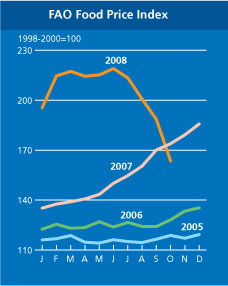Karl, from Inoculated Mind, describes Nature magazine’s selection of plant scientist Richard Sayre (as one of five crop scientists who could change the world) as “a good pick.” Sayre’s pet project, funded by the Bill and Melinda Gates Foundation, is to build a super cassava; 500 g will contain the daily requirements of protein, vitamin A and E, iron and zinc. Karl describes BioCassava Plus as “like golden rice on steroids.” And I guess whether you think that’s a good thing or not depends on what you think of Golden Rice and what you think of steroids.
We’ve crossed swords on Golden Rice before now; I’m not going to go there. I’ll just repeat that I remain unconvinced that Golden Rice will measurably increase the nutritional health of people outside the mostly urban market economy, and that if they were to increase their vitamin A precursor intake with other foods it would, in my view, deliver greater total good.
I’ve made my thoughts on super cassava known too. And again, I repeat the fundamental question; when you have engineered one variety of cassava and planted it across Africa, how are you going to respond when the entire population falls prey to a newly virulent form of some disease?
The answer to nutritional deficiencies is not a super variety of any staple. It is diversity. People in the cities might be able to afford super-staples, and the farmers supplying it might do OK. But they will not help poor farmers either to earn a living or to improve their own nutrition.
